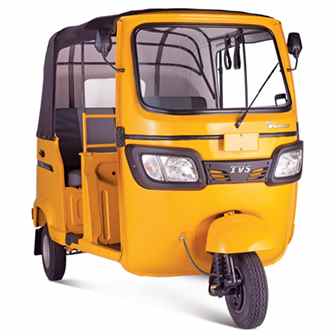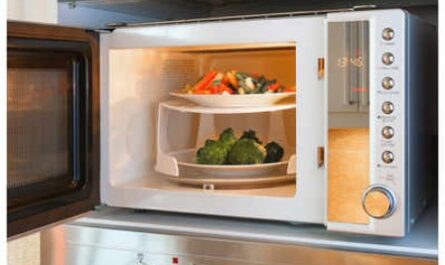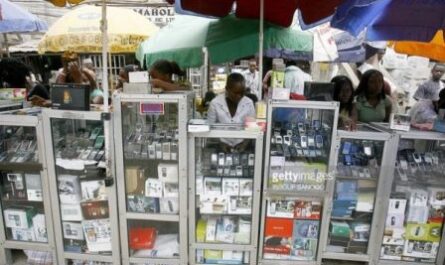The Keke Napep (also known as tricycles or tuk-tuks) transportation business in Nigeria has rapidly become one of the most popular and profitable ventures for entrepreneurs. With an ever-growing population and increased urbanization, the demand for efficient and affordable transportation has skyrocketed. This makes the Keke Napep business a lucrative investment for those looking to tap into the transportation industry. In this blog post, we will explore how profitable the Keke Napep business is, what factors influence its profitability, and how you can maximize returns from this venture.
Why is Keke Napep Popular in Nigeria?
1. Affordability
The primary reason Keke Napep is favored by both operators and commuters is affordability. For passengers, it provides an inexpensive mode of transportation compared to taxis or personal cars. On the other hand, operators find that starting a Keke Napep business requires a lower capital investment compared to other transportation businesses, such as running a bus or taxi service.
2. Accessibility
Keke Napeps can navigate narrow streets and congested urban areas, which makes them highly suitable for cities in Nigeria. They can easily get into places that larger vehicles struggle to access, making them a preferred choice for people commuting within urban and semi-urban areas.
3. Fuel Efficiency
One of the biggest advantages of Keke Napep is its fuel efficiency. Tricycles consume less fuel compared to cars and buses, which helps keep operating costs low for business owners. This contributes significantly to the profitability of the business.
4. High Demand
With the Nigerian population exceeding 220 million and urban centers like Lagos, Abuja, and Port Harcourt expanding, there is an increasing demand for quick, affordable, and efficient transportation. Keke Napep meets this demand, providing a steady stream of customers throughout the day.
How Profitable is Keke Napep Business?
1. Initial Investment
Starting a Keke Napep business is relatively affordable. The price of a brand-new tricycle in Nigeria ranges from ₦600,000 to ₦1,200,000 ($800 to $1,600), depending on the brand and location. There are also financing options available for people who may not have the full amount upfront. Many financial institutions and microfinance banks offer loans or hire-purchase arrangements to acquire tricycles.
2. Daily Earnings
The daily earnings of a Keke Napep operator depend largely on the city or town they operate in. For instance, in bustling cities like Lagos and Abuja, operators can make anywhere between ₦5,000 to ₦10,000 ($6 to $13) a day. On average, after accounting for fuel costs, maintenance, and other minor expenses, an operator can clear about ₦4,000 to ₦8,000 per day.
Assuming an operator works six days a week, this translates to an average weekly income of ₦24,000 to ₦48,000 ($31 to $62). In a month, the earnings can total ₦96,000 to ₦192,000 ($124 to $248). This is a significant income, especially when compared to other informal jobs in Nigeria.
3. Operational Costs
To understand the true profitability of the Keke Napep business, we must look at operational costs. Some of the common expenses include:
- Fuel: The average cost of fuel for a Keke Napep per day ranges between ₦1,000 and ₦2,000 ($1.30 to $2.60), depending on the distance covered and the fuel price.
- Maintenance: Regular maintenance is essential to ensure the tricycle remains in good working condition. Common maintenance costs include oil changes, tire replacements, and repairs. Monthly maintenance costs typically range from ₦5,000 to ₦10,000 ($6.60 to $13).
- Local Government Fees: Keke operators are required to pay certain levies or registration fees to the local government or transport unions. This varies from one state to another but usually averages ₦2,000 to ₦5,000 per month.
After factoring in these expenses, an operator can still make a substantial profit each month, especially if they manage their costs effectively.
4. Profit Margins
After accounting for expenses, the average monthly profit for a Keke Napep operator can range from ₦50,000 to ₦150,000 ($65 to $200). For someone who owns multiple tricycles, the profits can multiply. For instance, if you own five tricycles, you can earn anywhere between ₦250,000 to ₦750,000 ($330 to $990) monthly.
Factors Influencing Profitability
1. Location
The profitability of the Keke Napep business is highly location-dependent. In densely populated cities like Lagos, Abuja, and Kano, the demand for transportation is higher, leading to more trips and, consequently, higher earnings. In smaller towns or rural areas, while the demand is still present, the earning potential might be lower due to fewer passengers or shorter distances covered.
2. Driver Efficiency
Some Keke Napep operators hire drivers to operate their tricycles. The arrangement often works on a profit-sharing basis. Owners typically allow drivers to take home a fixed amount of the day’s earnings while they keep the rest. A trustworthy and hardworking driver can make the business more profitable, while an unreliable one can affect profits negatively.
3. Maintenance and Care
Like any other vehicle, tricycles require regular maintenance. Neglecting basic maintenance can lead to breakdowns and increased repair costs, eating into profits. Therefore, it is essential to ensure that the tricycle is well-maintained to reduce operational costs.
4. Government Policies
Government policies can also affect the profitability of the Keke Napep business. Some state governments have placed restrictions on where tricycles can operate. For instance, in Lagos, tricycles are restricted from operating on certain major highways, which limits the earning potential of operators. Staying informed about these regulations is crucial for anyone in this business.
5. Competition
In major cities, the competition among Keke Napep operators can be fierce. The presence of other transportation options like buses, motorcycles (okadas), and ride-hailing services also poses competition. However, despite these alternatives, Keke Napep remains a preferred option due to its affordability and accessibility.
How to Maximize Profit in the Keke Napep Business
1. Purchase Multiple Tricycles
One of the best ways to increase profits in the Keke Napep business is by purchasing multiple tricycles. By employing drivers to operate the tricycles, you can expand your income streams. It’s a strategy that works well for people who want to build passive income.
2. Strategic Location
Choosing the right area to operate in is crucial. Busy markets, schools, and residential areas offer the best chances of getting more passengers. Research your area of operation thoroughly and identify high-traffic routes where the demand for transportation is high.
3. Customer Service
Friendly and reliable customer service is a great way to attract and retain passengers. Operators who develop a good rapport with customers often get repeat business and even referrals. A satisfied customer might even be willing to tip or pay extra for a comfortable ride.
4. Maintenance
To avoid frequent breakdowns, make sure you stick to a regular maintenance schedule. This will not only save you repair costs but also ensure that your tricycle is in optimal condition, allowing you to maximize your working hours without interruptions.
Conclusion
The Keke Napep business in Nigeria is a highly profitable venture if managed correctly. With the increasing demand for affordable and efficient transportation, particularly in urban areas, the potential for high returns is significant. While challenges like competition, government regulations, and operational costs exist, these can be mitigated with proper planning, regular maintenance, and a focus on customer service.
If you’re considering investing in this business, ensure you conduct thorough research on your local market, understand the expenses involved, and develop a strategy to maximize your profits. With a combination of hard work and smart management, the Keke Napep business can offer substantial financial rewards.




Cool